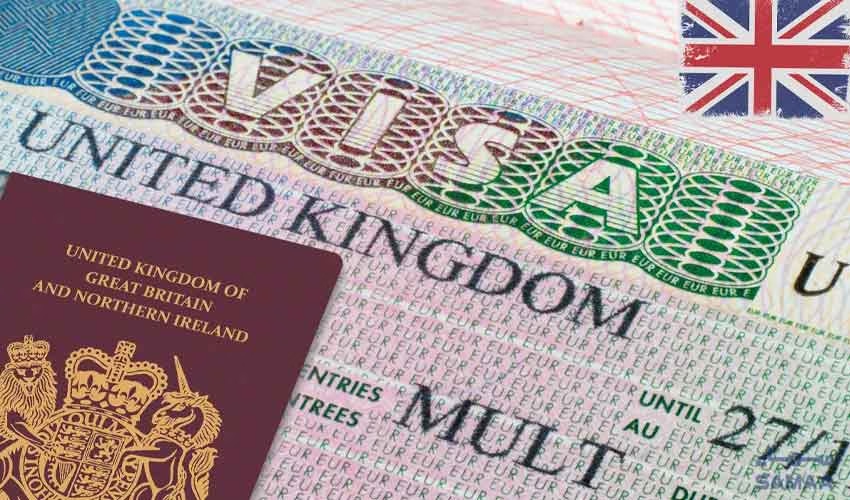The UK Home Office is reportedly tightening restrictions on work and study visa applications from Pakistan, Nigeria, and Sri Lanka, raising concerns about potential discrimination and fairness in the immigration process. According to Whitehall officials, the government’s latest move is aimed at curbing what it perceives as growing misuse of the visa system by individuals who enter the UK legally but later apply for asylum.
The crackdown comes after Home Office data, released in March, revealed that nearly 10,000 people who arrived in the UK on valid study or work visas had subsequently claimed asylum and were now being housed in state-funded accommodation, including hotels. Among these claimants, the highest numbers were from Pakistan, Nigeria, and Sri Lanka—prompting authorities to focus their attention on these countries.
Officials say the government is working closely with the National Crime Agency (NCA) to develop data models capable of predicting which applicants might attempt to exploit their visa status to seek asylum after arrival. Intelligence-led profiling, they claim, will help the Home Office filter visa applications more effectively by flagging high-risk profiles.
As part of the initiative, applicants’ financial records, such as bank statements, may be scrutinized to assess their credibility and determine whether they could potentially qualify for asylum support later on. Those whose profiles fit the patterns identified in the government’s intelligence data could face visa rejections even before arriving in the UK.
An official familiar with the policy explained, We’re seeing patterns where certain nationalities are disproportionately represented among those who overstay or claim asylum after arriving on legitimate visas. We need to address these risks without shutting the door on genuine students and workers.
However, the measures are already drawing criticism from migration experts and human rights advocates, who warn that the policy risks unfairly penalizing entire nationalities based on the actions of a few. Madeleine Sumption, director of the Migration Observatory at the University of Oxford, expressed skepticism about whether such profiling would be reliable or effective.
The key question—and one that’s hard to assess from the outside—is whether they actually have enough information to accurately predict who is likely to claim asylum after they arrive,Sumption said. Obviously, this is not a straightforward determination. It could be quite difficult to create a model that isn’t arbitrary.
She added that the effectiveness of such a system would depend heavily on whether clear, predictable patterns truly exist in the data. I could imagine scenarios where it could have a significant impact in deterring abuse. But I can also imagine scenarios where it might only affect a relatively small number of people—or worse, lead to arbitrary outcomes, she warned.
The Guardian previously reported that the UK government had been seeking ways to reduce the number of student visa holders transitioning into asylum claims. According to The Times, immigration officials are under pressure to identify and intercept potential abuse of the visa system before arrival, citing political and public concerns over rising asylum applications.
Asked whether the policy could face legal challenges for discrimination, Sumption noted that UK immigration law grants the government broad discretion when it comes to issuing visas to individuals outside the country’s borders. I’m not a lawyer, she said, but generally speaking, the government has a fair amount of leeway to decide who gets a work or study visa.
She acknowledged that while legal challenges on some grounds might be possible, there’s little restriction on the government’s ability to apply different criteria or levels of scrutiny to applicants from different countries. Broadly speaking, the government is allowed to discriminate on many different grounds when granting work and study visas,she explained.
The Home Office has defended its approach, stating that its priority is to protect the integrity of the immigration system while maintaining legitimate pathways for skilled workers and international students. A spokesperson said, We remain committed to welcoming talented individuals from around the world while ensuring our visa routes are not exploited for unauthorized purposes.
Yet critics argue that the new measures risk alienating genuine applicants from Pakistan, Nigeria, and Sri Lanka—countries that already contribute significant numbers of international students and skilled workers to the UK economy. They warn that profiling entire populations based on past trends could undermine the UK’s reputation as an inclusive and welcoming destination for global talent.
As the government moves forward with its policy, observers will be watching closely to see whether the strategy effectively deters asylum abuse—or triggers broader concerns about fairness, discrimination, and the future of the UK’s international education and labor markets.



